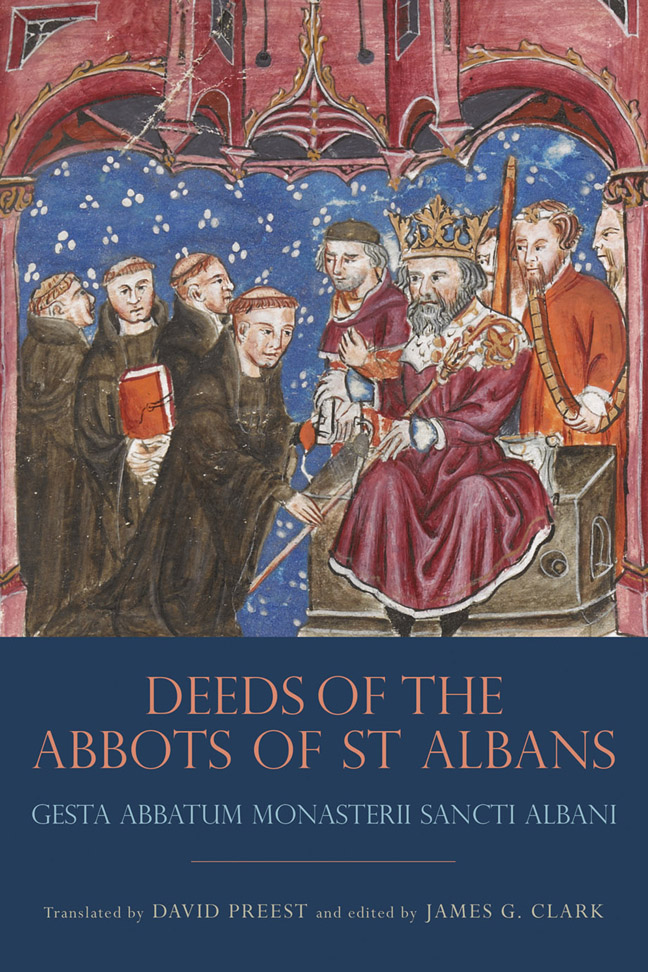Book contents
- Frontmatter
- Contents
- List of Illustrations
- Acknowledgements
- List of Abbreviations
- Introduction
- The Translation and its Sources
- The Deeds of the Abbots of St Albans
- Appendix A Thirteenth-Century Précis of the Deeds of the Abbots of St Albans: British Library, MS Cotton Vitellius a XX
- Bibliography
- Index
7 - Alfric
Published online by Cambridge University Press: 17 February 2024
- Frontmatter
- Contents
- List of Illustrations
- Acknowledgements
- List of Abbreviations
- Introduction
- The Translation and its Sources
- The Deeds of the Abbots of St Albans
- Appendix A Thirteenth-Century Précis of the Deeds of the Abbots of St Albans: British Library, MS Cotton Vitellius a XX
- Bibliography
- Index
Summary
Alfric the seventh
Alfric. In return for no small sum of money and the precious chalice in which our Lord's body was placed (which I have mentioned earlier) and for other priceless gifts, Alfric bought from the king, the great, deep fishpool, which was actually called ‘Fishpool’ nearby and in many ways a great nuisance to the church of St Alban.
The king's fishpool at Kingsbury which caused harm to the monastery of St Alban is bought by this abbot from the king and returned to dry land
Now this fishpond belonged to the kings of England, and indeed the king’s servants and fishermen did disturb the house and placed demands on its inmates. Because they were the king's men and behaved haughtily, they often attacked the servants of the religious. So when Abbot Alfric bought the fishpool for himself, he drained out some of the water and, as far as he was able, made it dry land, so that other kings in the future should not claim it for themselves as a desirable fishpool. You can still see the fishpool's high boundary banks near the street and settlement which leads to the west and is called ‘Fishpool Street’. The servants and fishermen of the king were accustomed to use the path on its bank on their frequent journeys from the church and court of St Alban to the king's fortress, which was called ‘Kingsbury’ and situated not far from the church. There still remained for the abbot's use a fairly small pool with its surrounding reeds, as he did not want to make it seem he had completely destroyed the whole pool. But the rest of it he turned into allotments. So this Abbot Alfric, full of days and famous for his holiness, after doing many laudable works, passed over to the Lord.
- Type
- Chapter
- Information
- The Deeds of the Abbots of St Albans<i>Gesta Abbatum Monasterii Sancti Albani</i>, pp. 76 - 78Publisher: Boydell & BrewerPrint publication year: 2019

